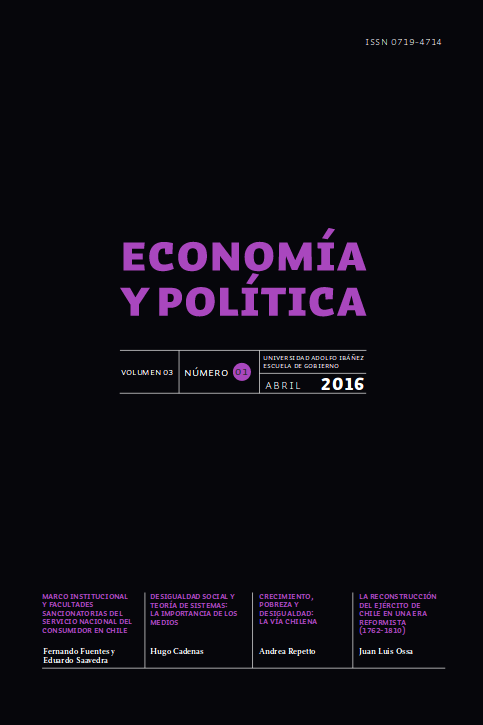La reconstrucción del ejército de Chile en una era reformista (1762-1810)
DOI:
https://doi.org/10.15691/07194714.2016.004Keywords:
Chile, desertions, army, militias, Bourbon reformsAbstract
his article discusses the implementation of the Bourbon reforms in Chile in the field of defense, the regular army and the provincial and urban militias during the second half of the Eighteenth Century. The aim is to reflect on the reformist project and its practical implications in a peripheral colony like Chile. The main hypothesis of these pages is that the Bourbon state was unable to carry out its alleged centralist and absolutist reforms in places like La Serena, Santiago, Concepción and Valdivia, and that this was due to the structural weakness of the Spanish imperial administration. Thus, the idea of professionalizing the armed forces in Chile clashed not only with internal political difficulties, but also with the ineffectiveness of a bureaucratic system that, by the 1800s, depended on the same local groups the reforms had sought to weaken. By 1810, when this article ends, those groups were in a privileged position to carry out an autonomist project, although they were still far from aspiring to a definitive break with the Peninsula.


